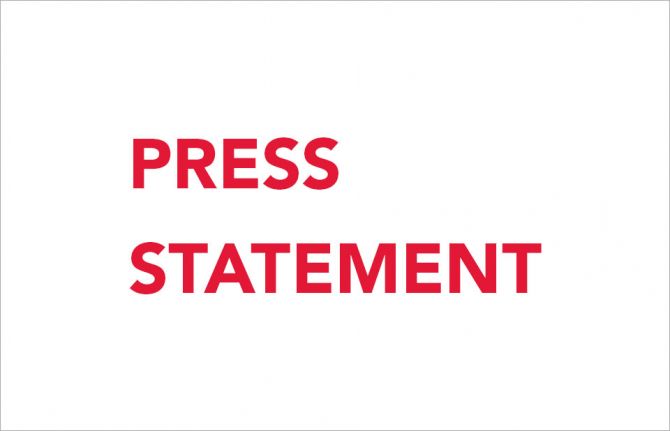

Press Statement
UNAIDS calls on Hungary to respect the rights of transgender people
08 May 2020 08 May 2020GENEVA, 8 May 2020—Both international and European human rights bodies have affirmed the right of people to legally change their gender and name to match their gender identity, recognizing that the right is fundamental to the enjoyment of many other rights. UNAIDS is therefore concerned that the Government of Hungary is proposing to remove the right of the people of Hungary to legally change their gender on legal documents.
The 2016 United Nations General Assembly High-Level Political Declaration on Ending AIDS recognizes that such legislative discrimination can create barriers to people’s health and well-being, barriers that governments have committed to removing. The proposed change to the Hungarian Registry Act would replace the term “sex/gender” with the term “birth sex”, defined as “biological sex based on primary sex characteristics and chromosomes”, and will not allow changes to “birth sex” once recorded. A step such as this has the potential to cause serious harm.
UNAIDS is also concerned that the proposed changes are being made using emergency powers at a time where communities are unable to effectively protest against the proposed legislation or participate in public discussions on it, thus circumventing proper democratic processes and the right to political participation. Especially during the COVID-19 pandemic, the focus should be on removing barriers to health care, not building them.
“All countries have an obligation to empower people to be recognized for who they are, without discrimination or stigma. I encourage all countries to continue to ensure that people are able to legally change their gender and name,” said Winnie Byanyima, UNAIDS Executive Director.
Stigma and discrimination, including discriminatory laws, against transgender people has been shown to increase violence, abuse and harassment against transgender people and to cause significant harm to their physical and mental health and well-being, their inclusion in society and their ability to access work and education. Transgender people are 12 times more at risk of acquiring HIV than other people and are being left behind in their access to HIV testing, treatment and care services. Evidence shows that where people are able to legally change their gender and name, they experience less discrimination, violence and stigma and have greater inclusion in society.
UNAIDS recommends that countries provide for legal gender recognition, with clear processes and requirements that are in line with international human rights obligations.
“This proposed step from the government traumatizes the transgender, gender diverse and intersex community. It puts people at risk of stigma, discrimination, abuse, harassment and violence for who they are,” said Barnabás Hidasi, of the Transvanilla Transgender Association.
UNAIDS
The Joint United Nations Programme on HIV/AIDS (UNAIDS) leads and inspires the world to achieve its shared vision of zero new HIV infections, zero discrimination and zero AIDS-related deaths. UNAIDS unites the efforts of 11 UN organizations—UNHCR, UNICEF, WFP, UNDP, UNFPA, UNODC, UN Women, ILO, UNESCO, WHO and the World Bank—and works closely with global and national partners towards ending the AIDS epidemic by 2030 as part of the Sustainable Development Goals. Learn more at unaids.org and connect with us on Facebook, Twitter, Instagram and YouTube.
Contact
UNAIDS GenevaSophie Barton-Knott
tel. +41 79 514 68 96
bartonknotts@unaids.org
UNAIDS Media
tel. +41 22 791 4237
communications@unaids.org
Press centre
Download the printable version (PDF)
